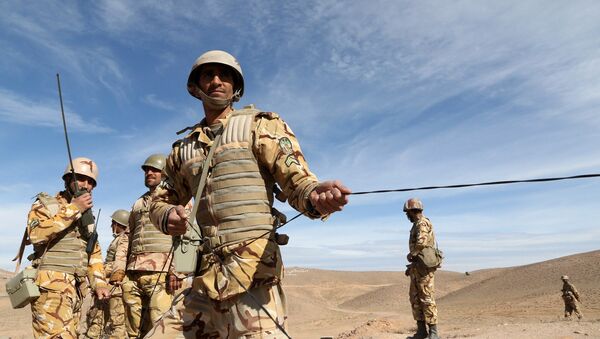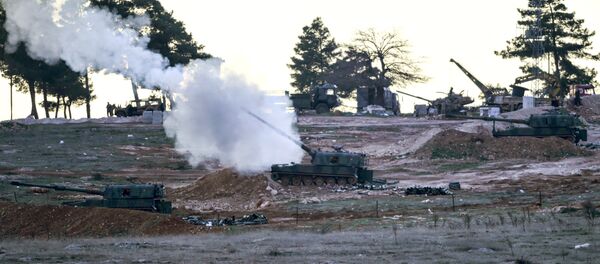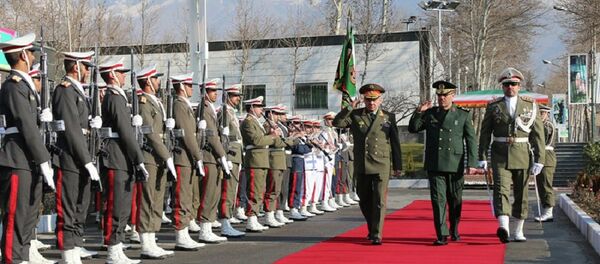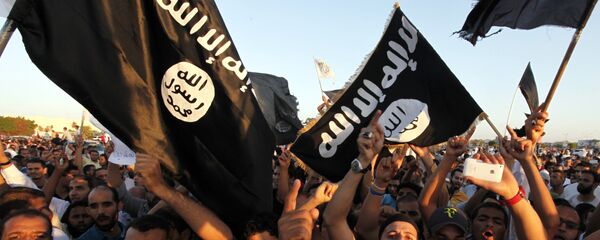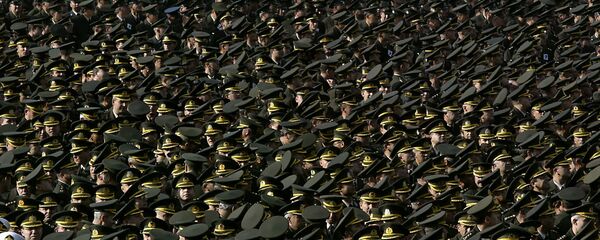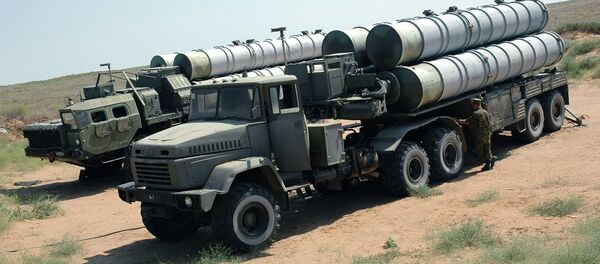Interviewed by the Iranian state news agency IRNA, Asadollahi, a veteran geopolitical analyst specializing in the Middle East, suggested that first and foremost, the last six months will be looked back on by historians as the turning point in the war in Syria.
"If we look at the situation in Syria from around March of 2015, it can be admitted that in the first six months, the balance of forces was in favor of anti-government forces," the analyst recalled.
"Taking these circumstances into account," the analyst noted, "the balance of military forces in Syria needed a radical change" if the Syrian government were to survive. "It is for this reason that Russia began its military operation in the country last fall. From the end of September, the Russians firmly tackled the Syrian crisis by organizing a strong reinforcement for government forces from the air."
At the same time, Asadollahi recalled, "the Syrian Army expanded the scope of its ground operations, with Iran sending operational advisors to assist." Prior to that, the analyst explained, Iranian advisors' assistance was limited to advising Syria's general staff. "Now, taking account of recent developments, they have been joined by operational advisors."
"Together, this created the conditions for decisive victories by the Syrian Army, and the military situation in the country changed dramatically."
"In northern Latakia, the Syrian Army inflicted a serious blow to the terrorists, who had taken refuge in the Turkmen and Jabal al-Akhrad Mountains, thus coming close to the border with Turkey. In eastern Ghouta [a suburb of Damascus], after the elimination of Jaish al-Islam [jihadist militant group] leader Zahran Alloush, the military situation also shifted in favor of the Army. As a result, starting approximately from last October, the Syrian government has begun turning the situation around."
Amid these tactical and operational successes, a strategic victory, Asadollahi says, now depends heavily on the actions of foreign actors.
"It must be said that so long as there is outside interference from countries including Turkey, Saudi Arabia, Qatar, the UAE, Jordan, the US and other Western governments, the Syrian crisis will continue. If Syria manages to close its borders and to stop the flow of finances, reserves and weapons to the terrorists, then it will really become possible to defeat them."
"Ankara has officially announced that it will not invade Syria on its own. By this Turkish authorities mean that they would need the agreement of the US and NATO. Since Turkey is a member of NATO, it expects that the military bloc would offer Ankara assistance were it to attack; therefore, it will not take any action without the consent of NATO command. In the present circumstances, the alliance has no desire to increase the scale of the military confrontation in Syria."
"As for Saudi Arabia, it's important to note that this country, 11 months after the start of its intervention in Yemen, has not been able to achieve any results. How is Riyadh going to send troops into Syria, with which it does not even have a common border? Or will the Saudis use Jordanian or Turkish territory as a springboard? These declarations by the Saudis are nothing short of a political bluff."
"As it turns out, fighters of these groups openly criticized Saudi Arabia, Qatar and Turkey for the fact that these countries did not provide them any assistance in their hour of need." In effect, the analyst noted, "Saudi Arabia's statements…are just a reaction to the protests of these militant groups."
Ultimately, Asadollahi warned, if Ankara, Riyadh, and other players look at the situation logically, "they will not intervene. Because if they make such an unreasonable decision to do so, the consequences will affect not only Syria, but will spark a [broader] war in the Middle East. It's worth noting that the West, for its part, does not want such an outcome."
It's worth recalling, the analyst noted, that "when Turkey downed a Russian jet, instead of offering full support for the actions of the Turkish military, the North Atlantic Alliance called on both sides to exercise restraint and caution in responding to the incident. From the West's perspective, the aggravation of the crisis in the Middle East would threaten to engulf Europe."
Now, Asadollahi suggests, with the Syrian government taking the first steps toward victory in a long and brutal conflict, the time has come for the Syrian, Russian and Iranian anti-terrorist coalition to expand.
"In particular," he says, "it is necessary to include China, whose government is very concerned about the situation in its Muslim territories. In addition, it would be sensible to establish cooperation in the anti-terror fight with influential countries like India and Brazil."
Ultimately, the analyst says, an expanded international anti-terrorism coalition will not only reduce the global threat of terrorism, but will improve the prospects of using political means and negotiations to resolve global crises.

